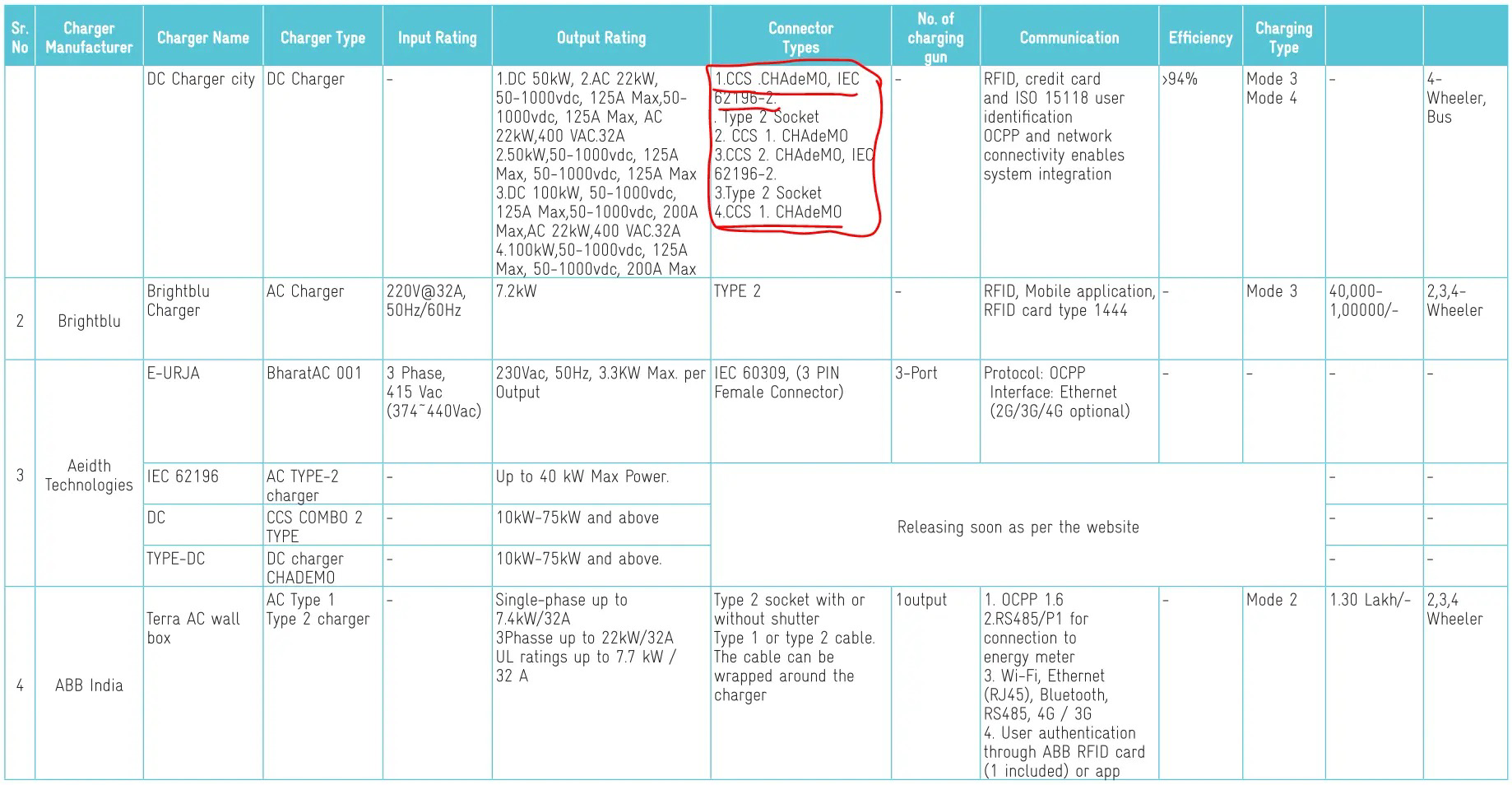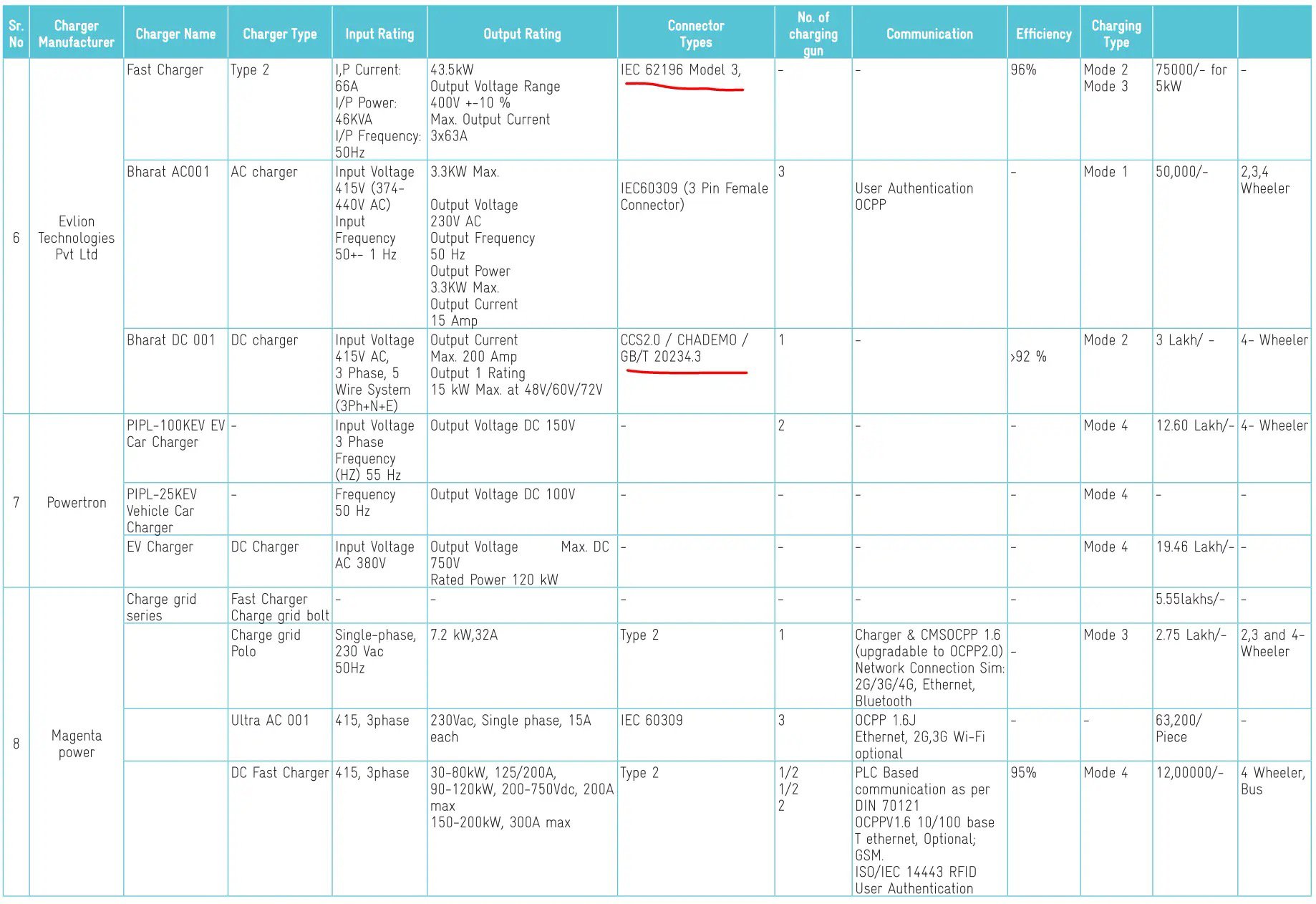- Charging standards and current situation
Among all international standards, India mainly follows IEC standards. However, India has also developed its own standards to harmonize EV-related standards with the global EV industry. These standards can be divided into charging, connector, safety and communication standards based on applications and functions in the electric vehicle ecosystem. Judging from India’s current policy, India accepts all types of charging protocols
- Correspondence and compatibility between Indian standards and other standards
Indian standards are similar to those in Europe, America, China and other countries and regions, and can be mainly divided into four categories, namely system performance (electrical safety and charging performance), charging interface, digital communication protocol and electromagnetic compatibility (EMC).
The following is the one-to-one correspondence between Indian standards and ISO, IEC and GB/T related standards.
ISO standards are only used for EVCS communication and EMC requirements. Countries such as the United States, Japan, Europe, Germany, China, and India also have common standard requirements for system performance and types of EV plugs used. The requirements mentioned in IEC 61851-1, GB/T 18487.1 and IS 17017-1 are equivalent. IEC 61851-3, GB/T 18487.3 and IS 17017-23 are also equivalent.
For the type of EV connector used, the requirements of IEC 62196-2 and IEC 62196-3 are equivalent to China’s GB/T 20234.2 and GB/T 20234.3 and India’s IS 17017-2-2 and IS 17017-2- respectively. 3. The requirements mentioned in IEC 62196-1, GB/T 20234.2 and IS 17017-2-2 standards are the same. Likewise, the requirements specified in IEC 62196-2, GB/T 20234.3 and IS 17017-2-3 are the same.
Except for Germany and Japan, the communication requirements for electric vehicle control systems in all countries are common and are all based on the ISO 15118 series of standards. The IEC, GB/T and IS standards of the United States, Europe, China, India and other countries are also directly adopted (that is, the requirements are the same).
The EMC requirements for EVCS are provided in the IEC 61851-21-1 and IEC 61851-21-2 standards. These standards are derived from the ISO 11451-2, ISO 11452-2, ISO 11452-4 and ISO 7637-2 standards and also include EVCS for all countries.
- Digital charging communication protocol
Based on the charging socket type and the digital charging communication protocol used, there are four main charging methods used by various EVs, namely Bharat EV Charger (BEVC), CCS, GB/T and CHAdeMO. BEVC-DC 001 and BEVC-AC 001 are used in DC EVCS charging piles and AC EVCE charging piles respectively.
The electrical ratings of the Level 2 BEVC-DC 001 specification will be adjusted to 150 kW and 1000 V. Communication between EVSE and the Central Management System (CMS) is a common global standard, the Open Charge Point Protocol (OCPP). It can control charging rates, billing, etc. based on the availability of mains power.
To sum up, we believe that our DC piles are compatible with Indian standards and charging protocols.
Post time: Mar-16-2024








